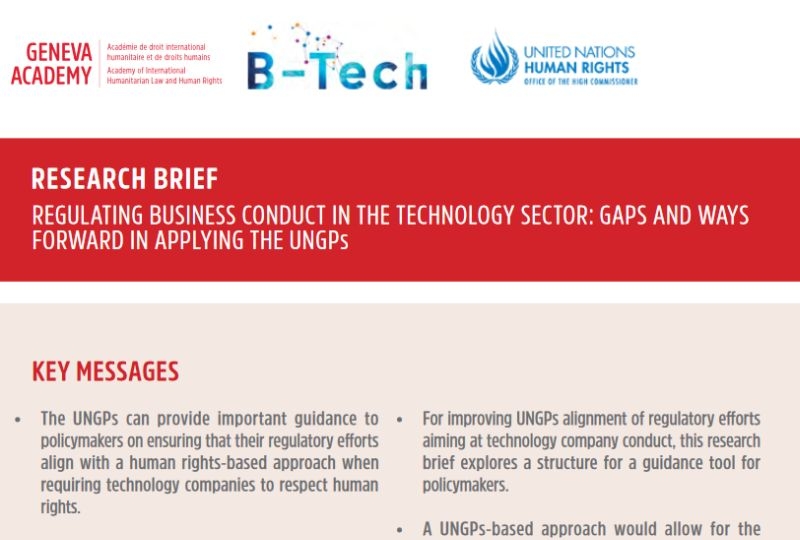The Research Brief proposes concrete recommendations on how regulatory processes could be better aligned with the UNGPs. Further, the research brief presents ongoing work by the OHCHR B-Tech Project in developing a guidance tool to inform policymakers on the policy and design choices when regulating technology company conduct in a manner which is consistent with the UNGPs.
‘A UNGPs-based approach to regulation ensures the development of a coherent regulatory landscape that is aligned with international human rights standards. This is key to avoid negative human rights impacts related to technology company conduct’ underlines Dr Ebert.
The publication also sketches three essential building blocks – or phases – for policymakers when regulating technology company conduct:
- Defining the ‘objective’ by a sound identification of the ‘problem’ that the regulatory effort is trying to solve and what constitutes the regulatory gap.
- Discussing and weighing the possible policy choices, bearing in mind the earlier mentioned mix of regulatory and voluntary measures available.
- Transposing the choices made in the two previous steps into design elements.
‘A strong stakeholder engagement along all stages of the regulatory development process is vital to the success of the process. Our cooperation with the Geneva Academy has supported our project in bringing this important message across to key stakeholders’ says Lene Wendland, Chief of Business and Human Rights at OHCHR.
‘As highlighted by the recent adoption of the EU Digital Services Act, many governments are currently developing regulations on this issue. This publication will be of use to policy-makers working on such regulations, both regarding their content but also regarding the process leading to their adoption’ explains Felix Kirchmeier, Manager of Policy Studies at the Geneva Academy.










